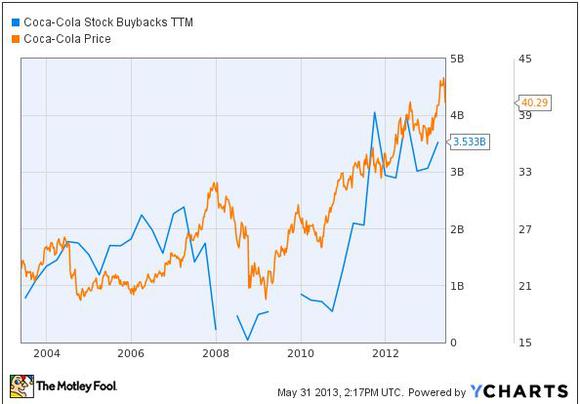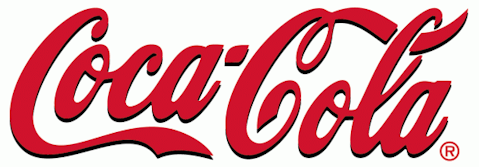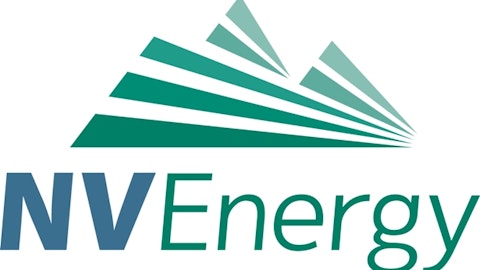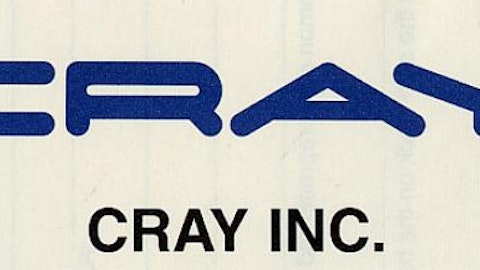Stock buybacks have been booming lately, and this has generated some criticism from analysts and the specialized media. Although buybacks have their pros and cons, we ultimately need to analyze the specific fundamentals and circumstances of each company and its buyback program to tell if a repurchase agreement is creating or destroying shareholder value.
A smart buyback
Warren Buffett understands a thing or two about capital allocation, and he has designed for Berkshire Hathaway Inc. (NYSE:BRK.B) what may be the most efficient and transparent repurchase program amongst publicly-traded companies. Buffett has set two main parameters to evaluate the convenience of a buyback program; from Berkshire Hathaway Inc. (NYSE:BRK.B)‘s shareholder letter for 2011:
Charlie and I favor repurchases when two conditions are met: first, a company has ample funds to take care of the operational and liquidity needs of its business; second, its stock is selling at a material discount to the company’s intrinsic business value, conservatively calculated.
Berkshire Hathaway Inc. (NYSE:BRK.B) will repurchase stock under two conditions: the company must have more than $20 billion in cash at hand for different uses, and the stock must also be trading at an attractive valuation, which Buffett has defined as a price to book value ratio below 1.2.
This provides clear and objective measures regarding the convenience of the program, and investors in Berkshire can feel comforted by the fact that the company won’t repurchase stock unless it’s in their best interest.
Strong companies, wrong timing
Many blue chips have a long standing policy of recurrent capital distributions via dividend increases and stock buybacks. The first condition is usually met in these cases, corporations like The Coca-Cola Company (NYSE:KO) have unquestionable financial strength, and they generate more than enough cash flow to reinvest in the business and return money to investors in the long term.
On the other hand, the timing of the buyback is usually suboptimal, to say the least. These companies typically spend more on repurchases when they are having a good year and the business is generating lots of cash. Unfortunately, this is usually the kind of situation in which the stock price is generally rising, so these companies end up repurchasing more stock when it´s more expensive, exactly the opposite of what they should be doing.
In the following chart we can see the historical evolution of the stock price and buybacks for The Coca-Cola Company (NYSE:KO) over the last 10 years, and the evidence is quite telling. Instead of capitalizing the opportunity to accelerate buybacks during the 2008-2009 recession, the company materially reduced repurchases over that period.

When it comes to a corporation like The Coca-Cola Company (NYSE:KO), no recession or financial crisis is going to derail the company: it owns the most valuable brand in the world according to Interbrand and an unmatched global distribution network to keep competitors at bay in a defensive industry. The Coca-Cola Company (NYSE:KO) is a steady and reliable cash machine, so the company should try to seize the opportunity to repurchase stock at attractive prices during recessions instead of hoarding more cash in such scenarios.
The Coca-Cola Company (NYSE:KO) is a mature business, and it´s having trouble increasing sales in developed countries due to market saturation and lackluster growth in carbonated drinks as consumers move towards healthier alternatives. Even in emerging countries, where demand is still expanding strongly, the company generates cash flows well above its reinvestment needs.
The Coca-Cola Company (NYSE:KO) produces more cash than it needs, and it´s not a high growth businesses anymore, so capital allocation policy is will be a big determinant of investor´s returns over the next years. Regularly increasing dividends and buying back shares is a solid and reliable strategy, but investors would be better served if management decided to imitate Berkshire – a major investor in Coke – and utilize its resources more efficiently by increasing buybacks when valuations become more attractive.






